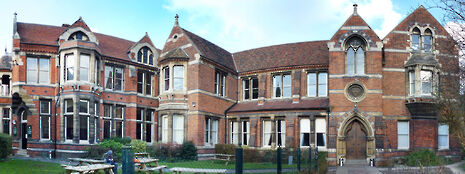DEBATE: Not again! No to Le Pen (Part 2)
Marianne Brooker argues that inviting Le Pen to speak shows the Union’s blatant disregard for the wider social and political issues involved when discussing fascism

Today, while handing out Unite Against Fascism (UAF) leaflets, calling students to a demonstration opposing the Union’s invitation to Marine Le Pen, someone called me a fascist. Such remarks have been bandied around a lot in the past few days, so I’d like to use this space to set these terms in context.
The Cambridge Libertarian Society accuses UAF of ‘fighting fascism with fascism’, and a brutal war that would be. But not only is this fundamentally incorrect, it is divisive and unhelpful rhetoric. Last Sunday saw a teach-in on Anti-Fascism, with activists and academics engaging in wide ranging discussion about what exactly it is and how to fight it. When we talk about fascism we mean authoritarianism, nationalism, racism, violence. We mean likening Muslims in France to the wartime occupation, holocaust revisionism, banning halal meat in schools, censoring library provision and clamping down on the ‘promotion’ of homosexuality (cue: gay couples adopting children will only end in ‘suffering’). Le Pen’s openly fascist father (cue: gas chambers are ‘just a detail in the history of WWII’) remains the honorary president of the Front National: his daughter, to whom he ‘passed the baton’, is no more moderate, no less fascist.
I am not a fascist. UAF, as we could have guessed from the name, are not fascists. It is not a hollow, pejorative term to throw at whoever we dislike or find reprehensible. It is a pervasive and dangerous ideology which has no place within our university or wider society. Objecting to this particular invitation is not a blanket ban on Le Pen’s freedom of speach or a fascist repression; just because the Union can invite Le Pen, doesn’t mean that it should.

It’s not only UAF fighting this corner; a No Platform policy has the support of the local Labour club, Aaron Kiely, the NUS Black Students’ Officer and some of our own CUSU sabbatical officers. The relevance of this debate is self-evident when we consider that the thuggish English Defence League have organised a march through Cambridge this same week. We might not be writing about racism in our essays, but that doesn’t mean it has gone away, or that it doesn’t hurt people.
Freedom of speech is not an unmitigated right to all public and private platforms. The Union have, again, blatantly disregarded the wider political, social impact of its decisions. In doing so it has, again, degraded its own platform, contributing only to the ever whirring PR machine of the far right, not to meaningful debate. Freedom of speech is a protection from the oppression of those who wish to silence by violence. Those discriminatory groups which would, given the chance, take away that freedom, do not deserve it.
To hide behind the often quoted: "I disapprove of what you say, but I will defend to the death your right to say it” assumes that it is our own suffering that will pay the price of allowing fascism to gain a legitimate foothold here. It would be eventually, but in the first instance it will be those far outside of our privileged academic sphere. This is not a heady, philosophical debate; it has real and terrible consequences.
I am a paying member of the Cambridge Union Society. It is using my money, and the money of many other students, to further an unjust cause, even if it claims not to support such a cause ideologically. The freedom to speak here does not outweigh the freedom from abuse and discrimination that we all deserve. A No Platform policy doesn’t limit our ability to think about fascism, it prevents fascists from telling us what to think about fascism. If we are not intelligent, creative and active in our opposition to speakers such as Le Pen, the right to freedom of speech will become nothing more than the means of its own destruction.
Disagree with Marianne? Read our initial piece here where James Root defends Le Pen's right to speak at the Union, as potests take place on Tuesday against her invitation.
 Features / Are you more yourself at Cambridge or away from it? 27 January 2026
Features / Are you more yourself at Cambridge or away from it? 27 January 2026 News / Vigil held for tenth anniversary of PhD student’s death28 January 2026
News / Vigil held for tenth anniversary of PhD student’s death28 January 2026 Interviews / Lord Leggatt on becoming a Supreme Court Justice21 January 2026
Interviews / Lord Leggatt on becoming a Supreme Court Justice21 January 2026 News / Reform candidate retracts claim of being Cambridge alum 26 January 2026
News / Reform candidate retracts claim of being Cambridge alum 26 January 2026 Comment / How Cambridge Made Me Lose My Faith26 January 2026
Comment / How Cambridge Made Me Lose My Faith26 January 2026









